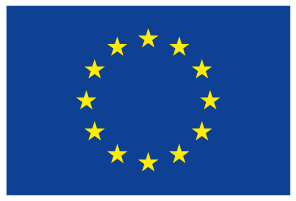Italy
2020
- Type : Project
- Size : Local community
- Area : Industrial, Residential
Environmental benefit
Smart Grid Pilot: Banco EnergETICO
Share
Italy
2020
- Type : Project
- Size : Local community
- Area : Industrial, Residential
Environmental benefit
Discover this use case online
Completed in 2021, the project is the result of the operational and technological synergy between two companies – A2A and Alfa Acciai – and the Lombardy Region.
From the 2021-2022 thermal season, the heat dispersed by the steel plant owned by Alfa Acciai will be recovered and fed into the A2A district heating network.
The plant built in Alfa Acciai will allow energy recovery of up to 11 MWth, for a quantity of about 30,000 MWh / year, equal to the needs of 3,000 equivalent apartments. 2.340 tons of oil equivalent will be saved, emissions into the atmosphere equal to 5,609 tons / year of CO2, 933 kg / year of CO and 4,405 kg / year of NOx will be avoided, as well as a drastic reduction of PM10 and PM2.5 fine particles. The reduction will also affect the release of heat into the atmosphere and the consumption of make-up water of approximately 2,300 cubic meters / year.
The heat made available comes from the cooling water circuit of Alfa Acciai industrial processes, which has been redesigned to become a heat resource for the district heating network. A special high energy efficiency exchange station was also built which then interconnects the steel mill process and the district heating network.
The project also saw the use of a new method of laying the pipes connecting to the network through the application of an innovative methodology: the networks were preheated with hot air which, applied to urban soils, made it possible to significantly reduce the duration and impact of the installation work.
 R-ACES has received funding from the European Union’s Horizon 2020 research and innovation programme under grant agreement N° 892429
R-ACES has received funding from the European Union’s Horizon 2020 research and innovation programme under grant agreement N° 892429
Completed in 2021, the project is the result of the operational and technological synergy between two companies – A2A and Alfa Acciai – and the Lombardy Region.
From the 2021-2022 thermal season, the heat dispersed by the steel plant owned by Alfa Acciai will be recovered and fed into the A2A district heating network.
The plant built in Alfa Acciai will allow energy recovery of up to 11 MWth, for a quantity of about 30,000 MWh / year, equal to the needs of 3,000 equivalent apartments. 2.340 tons of oil equivalent will be saved, emissions into the atmosphere equal to 5,609 tons / year of CO2, 933 kg / year of CO and 4,405 kg / year of NOx will be avoided, as well as a drastic reduction of PM10 and PM2.5 fine particles. The reduction will also affect the release of heat into the atmosphere and the consumption of make-up water of approximately 2,300 cubic meters / year.
The heat made available comes from the cooling water circuit of Alfa Acciai industrial processes, which has been redesigned to become a heat resource for the district heating network. A special high energy efficiency exchange station was also built which then interconnects the steel mill process and the district heating network.
The project also saw the use of a new method of laying the pipes connecting to the network through the application of an innovative methodology: the networks were preheated with hot air which, applied to urban soils, made it possible to significantly reduce the duration and impact of the installation work.
